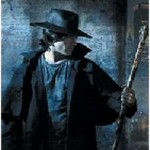 I’m fatigued by a crazy summer, but simultaneously excited about stuff coming down the pipe. Perfect time for reading (re-reading in this case) what my mom calls “sunburn novels.” You know, the kind that aren’t high literature, but perfect for an afternoon in a lounge chair getting too much sun.
I’m fatigued by a crazy summer, but simultaneously excited about stuff coming down the pipe. Perfect time for reading (re-reading in this case) what my mom calls “sunburn novels.” You know, the kind that aren’t high literature, but perfect for an afternoon in a lounge chair getting too much sun.
Jim Butcher’s Harry Dresden novels may be my favorite of this kind. It’s a popular, fun series that can be best described as “Harry Potter for grownups.” Going through them again with a business writing coach’s eye, I found a variety of lessons all writers should internalize and apply…
Focus on What’s Important
Butcher understands that the character and the world are the most compelling aspects of his stories…and he spends his energy on developing them. In your writing, identify what you do best and give it everything you have. People will forgive you for weakness in other areas.
Don’t Worry about Perfect
The Dresden novels are B to B+ writing from a prose standpoint, sometimes even B-. Lots of “rookie mistakes” the pros warn us not to make, like overly emotive adverbs and the dreaded “bookism” dialog tag. Guess what? Nobody cares. Because he focused so well on the things he excels at, Butcher gets away with imperfection.
Stick With What Works
I’m not saying Harry doesn’t grow and change from novel to novel — in fact, his character arc is one of the best I’ve seen in such a long series. But the basic structure of most of the novels is the same. Butcher realizes what his fans want, and continues to deliver.
Constantly Seek Connection
If you can’t connect with a reader, you won’t sell any books. In the case of Dresden, Butcher plays with well-known myths, legends (urban and ancient), stories and pop-culture references. The result is a shared vocabulary that gives his stories more weight because of the connection.
Any other Harry fans out there? What else can we learn from Butcher’s longest-run character? The best coaches in the business of writing are the folks who’re doing exactly what we wish we were.




